In an age where we’re more conscious than ever about what we consume, finding trustworthy tools to help navigate food and beauty products can feel overwhelming. That’s why I’ve relied on the Yuka app for years now; it’s an amazing tool for scanning, learning, and making informed choices about beauty products and food we use every day.
I have scanned 100s of items, and like with all technology, it is not perfect, and after using it for a while, here are the pros and cons of the Yuka App and my honest take if it is accurate.
TL;DR
The Yuka App is great if you want to learn more about the ingredient list in food and beauty products. It is definitely a time saver, but like all technology, it is not perfect, and I would not recommend trusting it 100% but use it as a guide.
Please note that I am not sponsored or affiliated with the Yuka app. This review is my honest experience of using it for years.
Yuka App Review: What is It & How Does It Work?
Yuka is a simple product-scanning app that rates products on a scale from 0 to 100, where 0 is poor, and 100 indicates a clean, perfect product. Next to the score, it has a traffic light system: Excellent, Good, Poor, Bad.
If a product has a bad score, Yuka provides good-quality alternatives.
Yuka app focuses on food and cosmetics, with a database of over 5 million products (4 million food items and 2 million cosmetic products).
When scanning food, the Yuka app highlights whether a product has any additives and marks it as hazardous, moderate risk, limited risk, and risk-free. Yuka app also lists nutrition, such as whether the product is too high in salt or fat and, generally, whether it is healthy. You can read about their food scoring here.
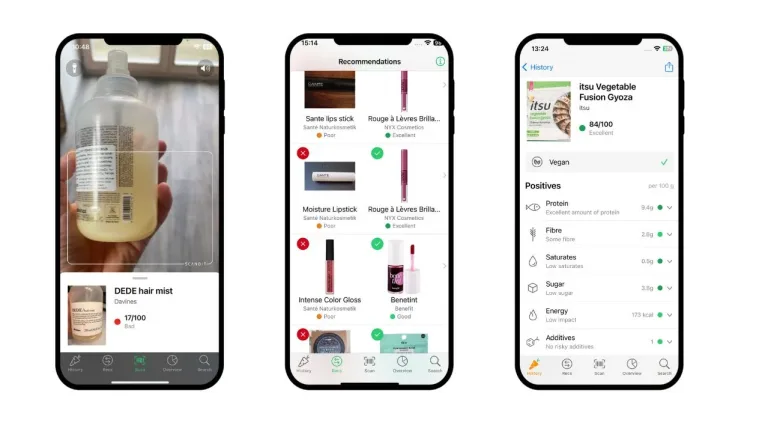
Cosmetics and beauty products score using the same 0 to 100 traffic light system. The Yuka team lists ingredients based on the latest scientific research and assigns a risk level according to their potential health and environmental effects. You can read a full explanation of food scoring here, and cosmetics scoring here.
If you are looking for a clean-ingredient sunscreen, I wrote an article, BEST NON-TOXIC SUNSCREENS YOU CAN BUY IN 2026, using the Yuka app, scientific research, and customer reviews.
The Yuka app is currently available on Apple Store and Google Play in France, Belgium, Spain, the UK, and the US, and it has over 55 million users as of this article’s writing. (Update: it has 80 Million Users on the 30th of December 2025).
Now that we know what the app does, let’s begin with the Yuka App review.
Pros and Cons of the Yuka app:
Pros
✅ The Free Version is Highly Functional
The free version of the Yuka app is excellent. It differs from other apps, where the free versions are not great or are bombarded by ads. Of course, you can get a premium version, which is very helpful when shopping online, so you can search for products, not only scan. But for the simple product scanning function, a free version is amazing.
✅ Scans Both Food & Beauty Products
I love that Yuka is a two-in-one app, as most scanning apps are focused on food or cosmetics (it would be great to see cleaning products on the Yuka app soon).
✅ It highlights harmful ingredients
Especially when scanning beauty products, I like Yuka because it is not about the brand name but the ingredients and quality. I was surprised to see how the same brand can have excellent and terrible products. For example, I used Cerave day cream with SP, thinking it was perfect for my skin, with very clean and simple ingredients, only to find out that it scored zero on the Yuka app as it has multiple hazardous ingredients. Another very important lesson I have learned since using the Yuka app is that many sunscreens have hazardous ingredients. Yuka was very useful in helping me pick a new sunscreen that is good for my skin and the environment.
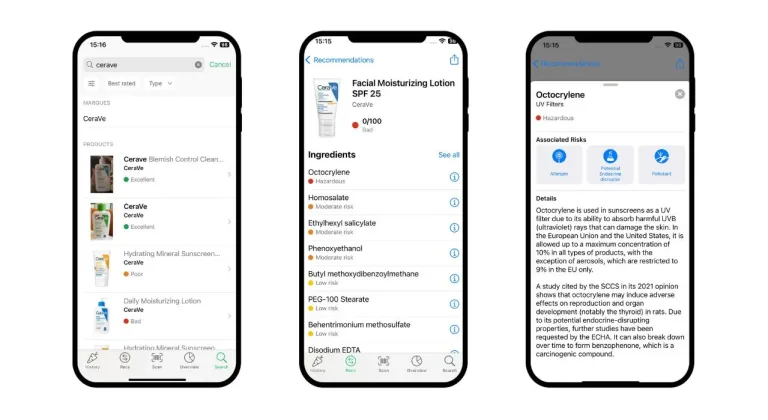
✅ Saves Time While Shopping
Especially when shopping in a physical shop. Being a conscious shopper, I used to take ages reading labels when building food. With cosmetics, I always found all the ingredients so confusing and difficult to memorize that I would always go for a trusted brand rather than analyzing the ingredient list.
✅ It helps to make healthier choices
Yuka helps me make healthier choices and learn. I am a digital nomad, and the Yuka app is excellent when traveling! I lived in Spain for three months and used it every single day. It was beneficial when looking for vegan products and choosing olives with no horrible ingredients (I was shocked to see how many olives had flavorings and horrible preservatives ).
✅ It offers healthier options
Healthier suggestions is a great feature. Even if you can’t find an alternative in the shop, you can save the more nutritious or clean beauty product options in the app and buy later or online. This feature is more helpful for cosmetics, but I also used it for food a few times. Sometimes the suggestions are not quite what you are looking for, but are still very helpful.
✅ Educational & Science-Based
Yuka app is not only easy to use but also educational and science-based. It allows you to learn about hazardous ingredients and look up the latest studies about them. I do wish that there were more links to studies included in English, as some are linked to French.
✅ Encourages Industry Change
A recent feature in the Yuka app allows consumers to ask brands to stop using harmful ingredients in their products. Seeing a tech company providing the tools to change the food and beauty industry is incredible. It is also great for brands to see that consumers are educated and want products that do not harm them.
✅ Independent and transparent brand
Yuka is an independent platform that does not take any sponsorships from brands and does not earn affiliate commission. They have an internal team of toxicologist, registered dietitian, and food nutrition engineer, supported by additional 43 sientists and health profesionals, advising on ingredients and scoring.
✅ No Ads even in the free version
No ads on a very useful platform is not common. It is great for a user, but I do think that carefully placed ads could help the platform grow, but at the same time ~I do respect thier desision to keep the product as clean as possible.
I love the Yuka app, but a few things could be improved for a better customer experience.
Cons of the Yuka app
❌ Offline Mode is Buggy
Unfortunately, the offline mode does not function properly, even with a paid subscription. I’ve tried multiple times, but I keep encountering errors. In a normal situation, people would always have the internet. However, as a digital nomad, I would love to shop without the internet, so this is the biggest Yuka app criticism.
❌ Does Not Highlight the Quality of Ingredients
This is the biggest downside of the Yuka App, especially for beauty products. It highlights if there are any harmful ingredients, but it does not say anything about the formulation. What is great for one person might not be suitable for another. Or ingredients can be very clean, but cheap and not effective.
The product can also be unethically sourced or contaminated with heavy metals.
So if you only rely on the Yuka App you can buy something with very clean but not suited for your skin, or from bad quality, or with non-beneficial ingredients.
❌ Occasional Errors
I have been using the app for a few months and have found a few errors.
For example, two identical-ingredient soya sauces had different scores. Based on the score, I bought a three times more expensive one, only later noticing that the cheaper one was as good.
I also noticed “vegan” sardines that are actually (and obviously) not vegan. This case is obvious, but if more nonvegan products are labeled vegan, it could hinder the consumers’ trust.
I have also found some cosmetic products like mascaras with inaccurate ingredient lists.
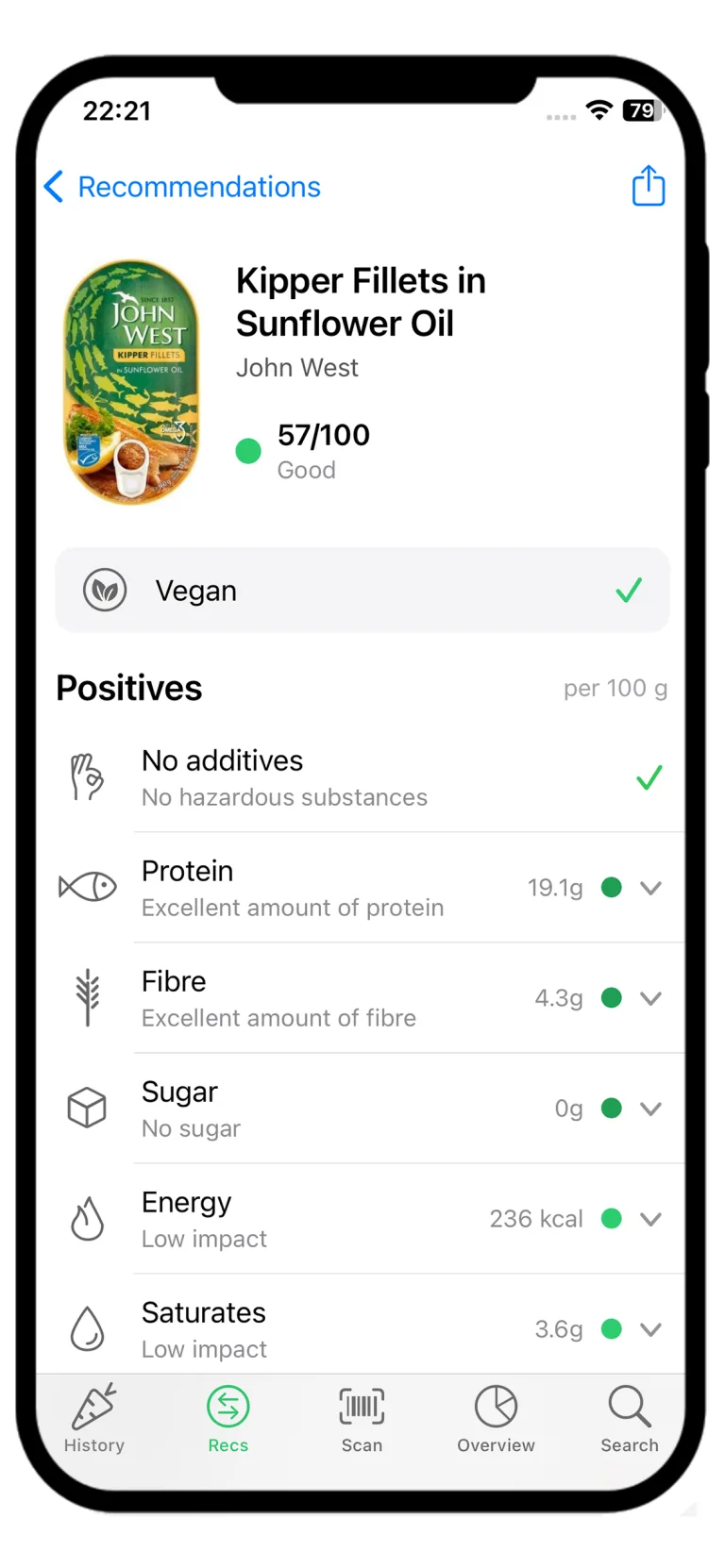
❌ Difficult in Reporting Mistakes
If you notice an error on the Yuka app, it is challenging to report it. I tried two times and both gave up, as you need to submit a picture and send an email via Apple’s native Mail instead of Gmail, for example. I don’t have the Mail app, so I just can’t be asked to send the feedback. I hope that the process of sending feedback will be simplified.
I tried multiple times to report a mistake, but it crashes when uploading a photo.
It should be improved in the future.
❌ No Way to track changes in ingredients or their scoring
It is only natural that some brands change their ingredients or new studies emerge about the safety of existing ingredients. Unfortunately, no section or notification system allows you to see the changes as they happen. I wish there were a notification when ingredient lists are updated.
❌ Inconsistency in scoring ingredients
When looking for a non-toxic toothpaste, I have noticed that there were a few exactly the same toothpastes. The most annoying thing was that some of them showed a score of 79, but one was listed with a score of 43.
Unfortunately, the more I use the app, the more duplicates I keep noticing.
I do feel that Yuka should employ a small team for quality control. I hope to see this next year.
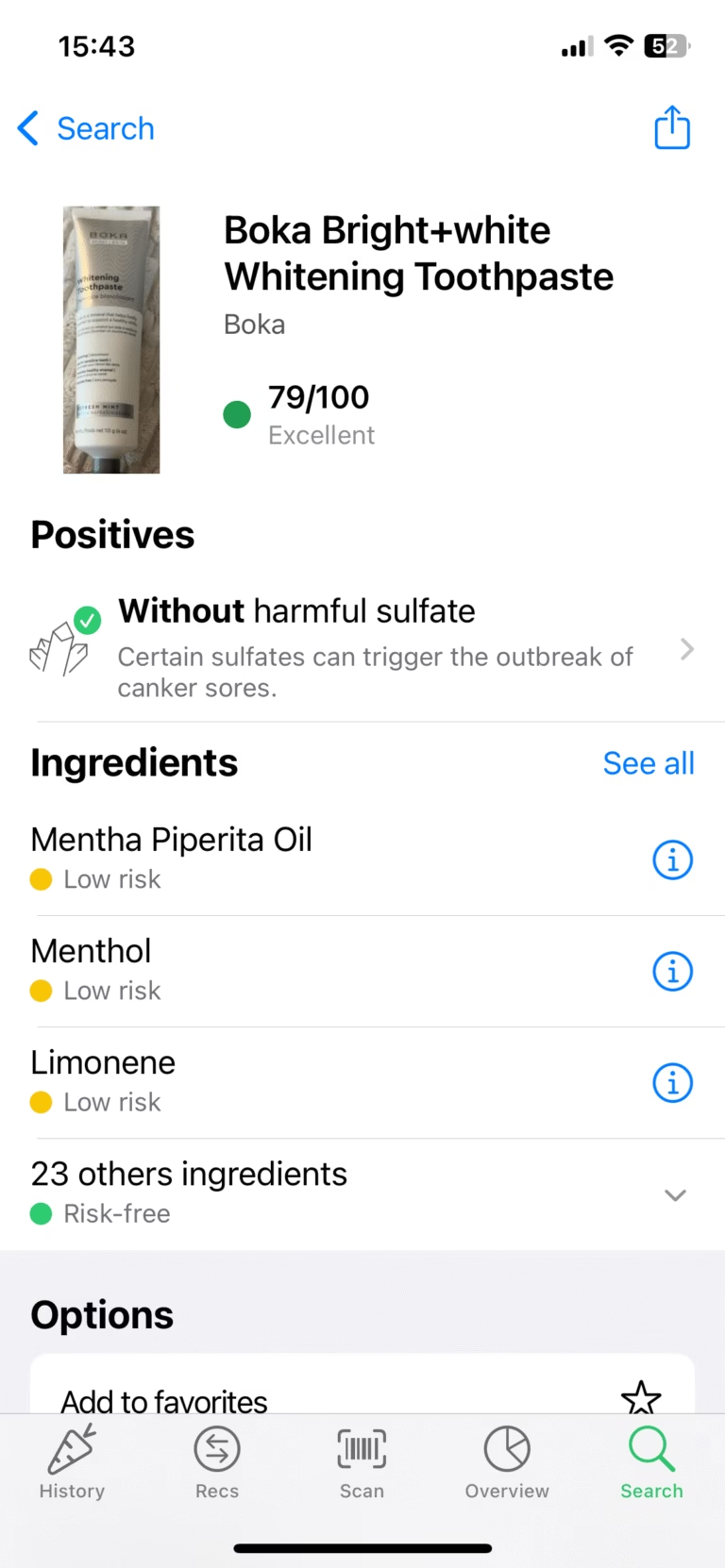
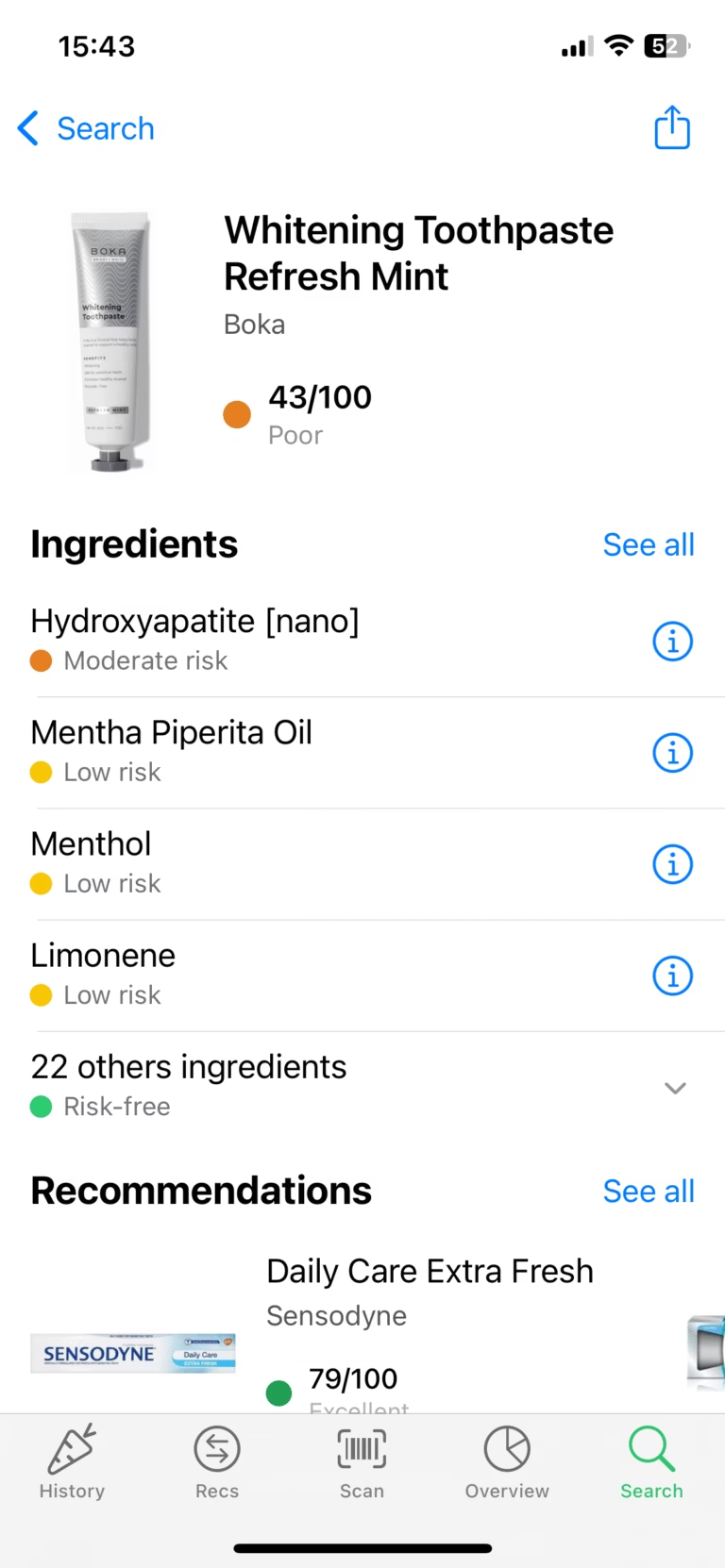
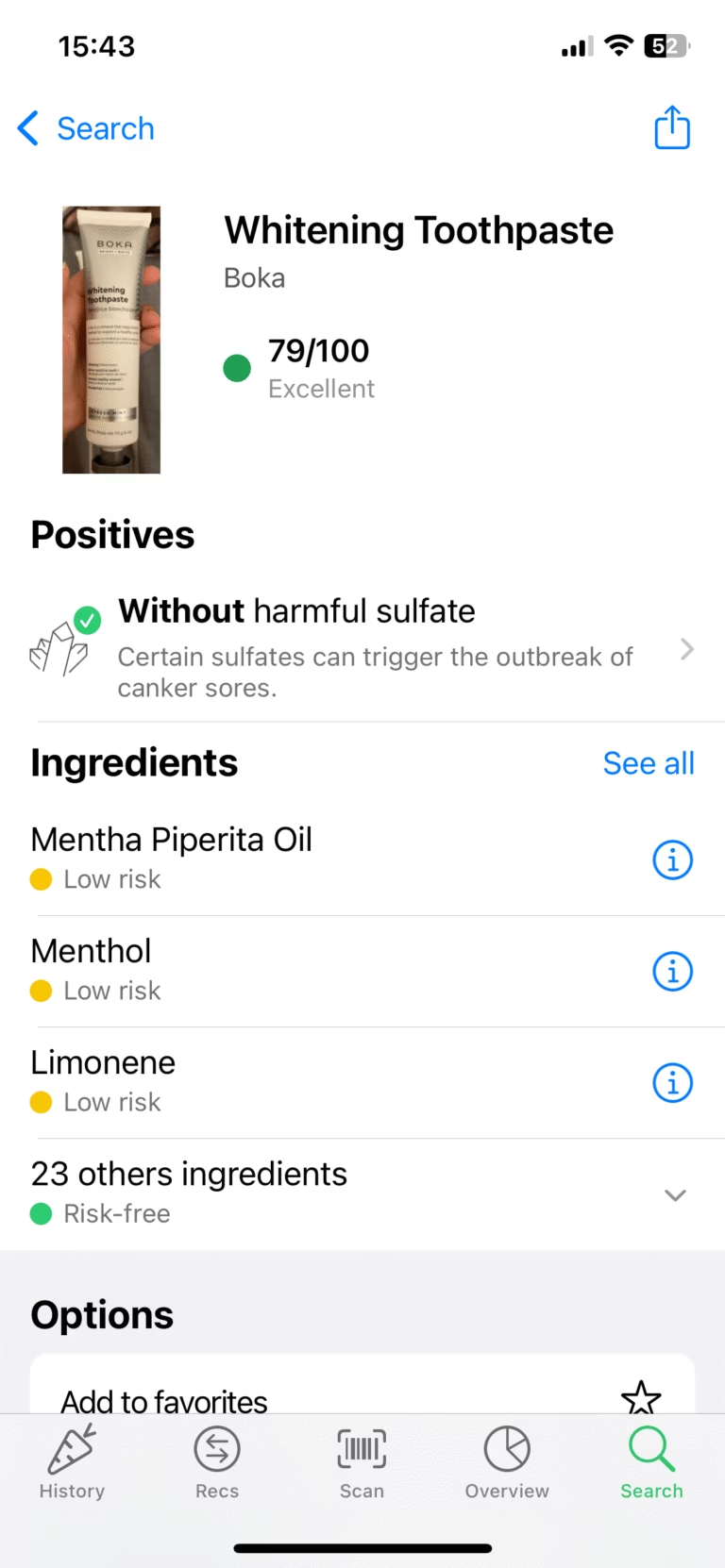
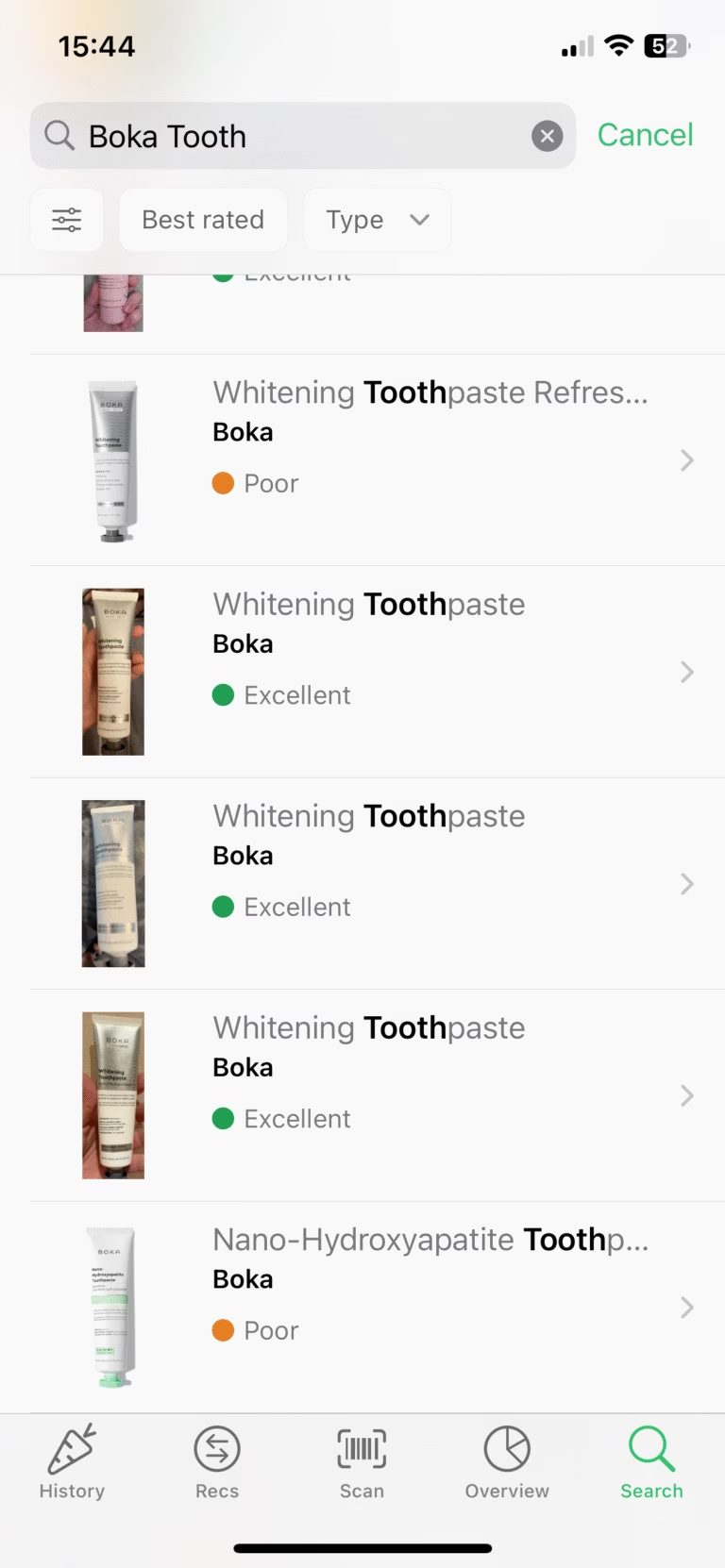
❌ Duplicate products with different scores
I have noticed a few times now that some of the ingredients, like fragrance, in this example, are marketed differently. This example is from two cosmetic products; therefore, they should be risk-free or low-risk risk as it impacts the oversall score of the product
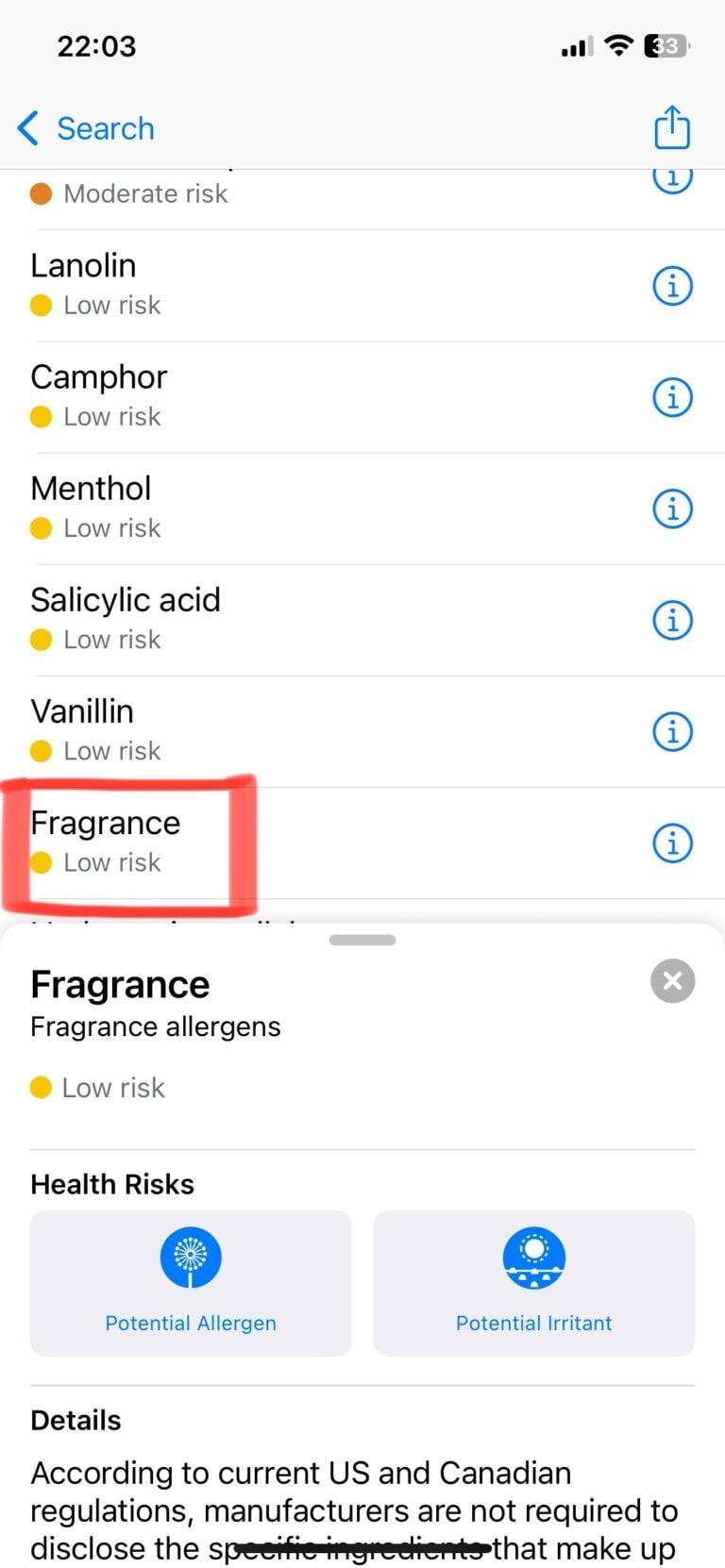
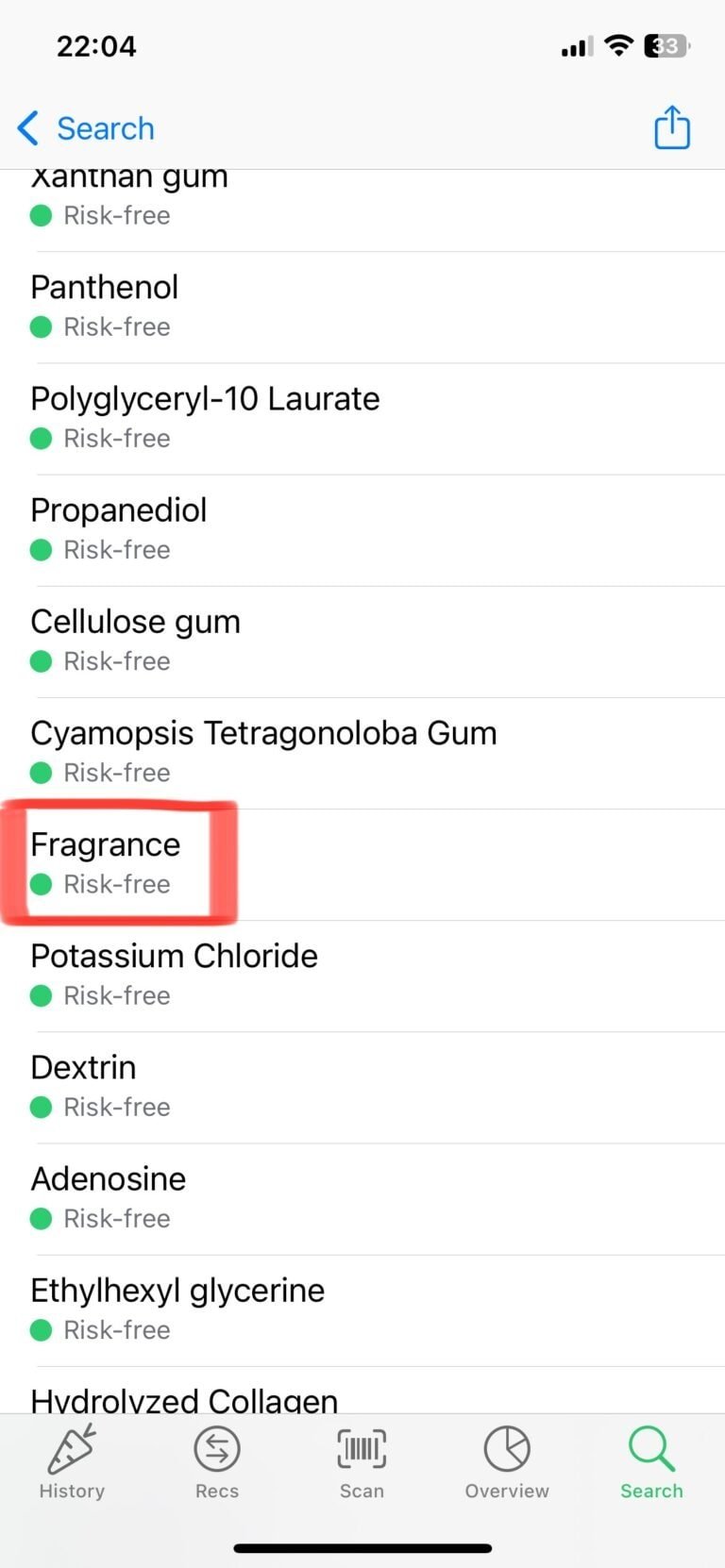
❌ Potentially Harmful for Those with Eating Disorders
Food scanning apps, in general, could be harmful to people with eating disorders like orthorexia and should come with a warning for people who could be affected. Sometimes, the scores could also make us choose the worst options. For example, we could pick up something with additives instead of something high in fat or salt. So in terms of food, I think It should only focus on additives, rather than score food on fat or calorie content.
This Olive oil example shows that even if it scores excellently, it does reduce the score to 85/100 due to highlighting Negatives as ‘too caloric’.
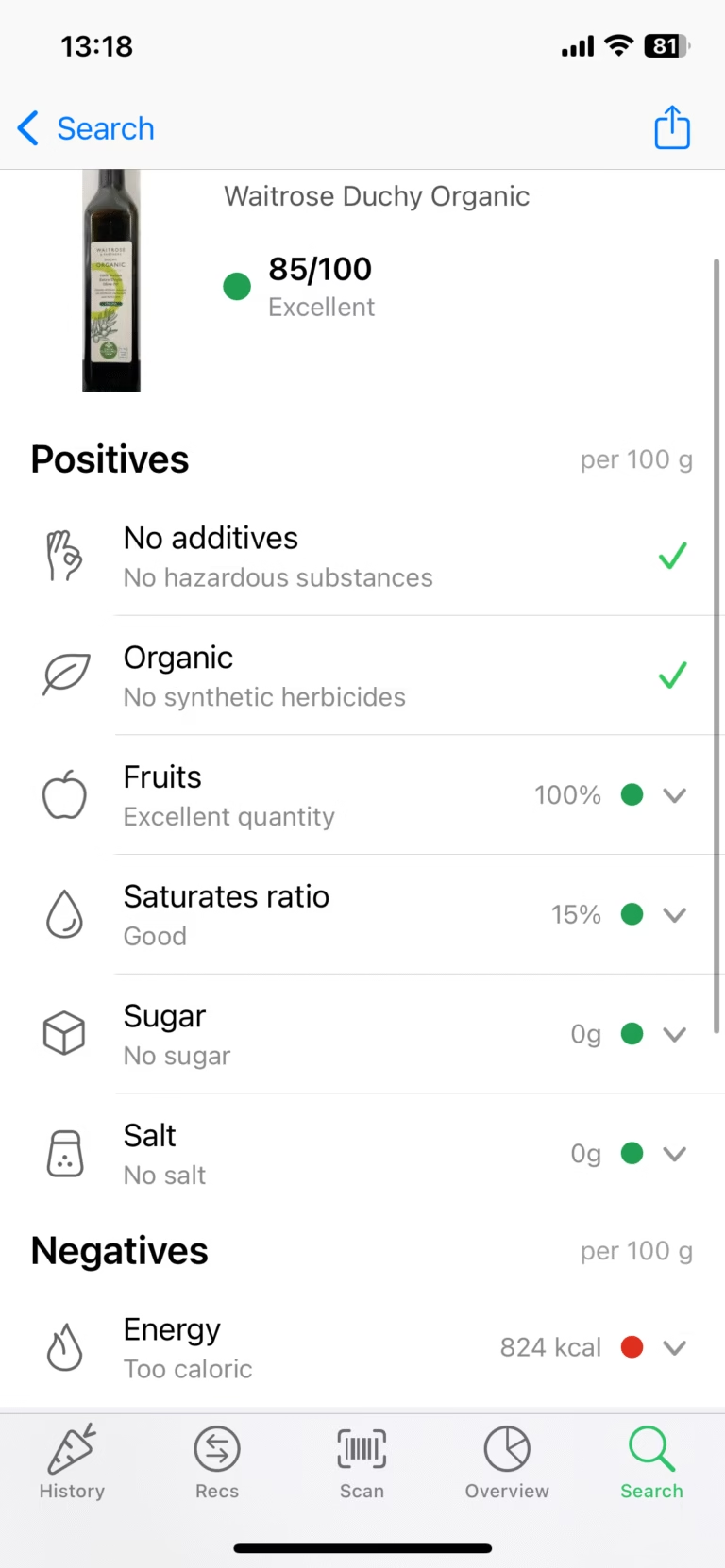
Is the Yuka App Accurate?
Despite some inconsistencies, Yuka used to be accurate 95% of the time. However, lately, I find it less precise, I would say the accuracy fell to maybe 85%, but most of the time it’s inconsistent in scorig same ingredients due to a new feature where users can submit products.
It also depends on what you are using it for; it is only to avoid harmful ingredients in food and cosmetics.
Use it as a guiding tool rather than relying on it entirely for your food and cosmetic choices.
Is the Yuka app free?
Yuka app is free for scanning products, but you can also pay £12.99 for a whole-year subscription with extra features like a search bar, (meaning that you can not only scan but also search for products), which is great if shopping online, an offline mode, unlimited history, and customizable filters like vegan, vegetarian, palm oil-free, etc. In my eyes, the free version is absolutely fine, but I wanted to pay this small fee because I like the app, and I want to support the Yuka team and see the app develop more cool features in the future.
Who owns the Yuka app?
Yuka is a small, independent company of 15 people, founded in 2016 by two brothers, François and Benoît Martin, and a friend, Julie Chapon, who wanted an easier way to shop for the best quality food. Since February 2024, it has been a B Corp-certified company. The company’s commitment to transparency—operating without ads or brand sponsorships—further solidifies its reputation.

Final Verdict: Pros & Cons of the Yuka App and it’s accurasy
First of all, I love how transparent the Yuka Brand is. You can find information about the scoring system, the team, and even evenings. They do not affiliate themselves with any brands and are fully independent. It really feels that they care about the consumer more than the profit.
After reading the Yuka app reviews on the App Store, I realized I am not the only one who loves this app so much. It is no wonder that the Yuka app community is growing so fast, and I love being a part of it.
The Yuka app is a great tool for anyone looking to make healthier and more informed choices about the products they buy. While imperfect, its ease of use, educational features, and ability to suggest better alternatives make it a standout option in the crowded space of product-scanning apps. Whether you’re a busy parent, a digital nomad, or someone trying to live a healthier lifestyle, the Yuka App can be a game-changer.
I hope you have enjoyed reading the Yuka app review. Download it here and give it a go.
Are you a Yuka app user? Do you love it or think it is misleading?
If you love using apps for your nutrition and exercise inspiration, you can also read: 6 COOL HEALTH APPS FOR YOUR WELL-BEING
You might also want to find out about the Zoe App: PERSONALIZED NUTRITION: IS THE ZOE APP WORTH IT?
Clean product lists:
Best non-toxic sunscreens you can buy in
Last Update on 28/02/2026 by Silvija Meilunaite- new cons and pros added, more information about user and product numbers added.
Silvija Meilunaite, PN1-NC, CSMC, is a certified nutrition and menopause coaching specialist who writes about midlife health, nutrition, and evidence-based wellness. She focuses on research-driven approaches to feeling better in your 40s and beyond, with a special interest in low-tox living and supportive daily habits.



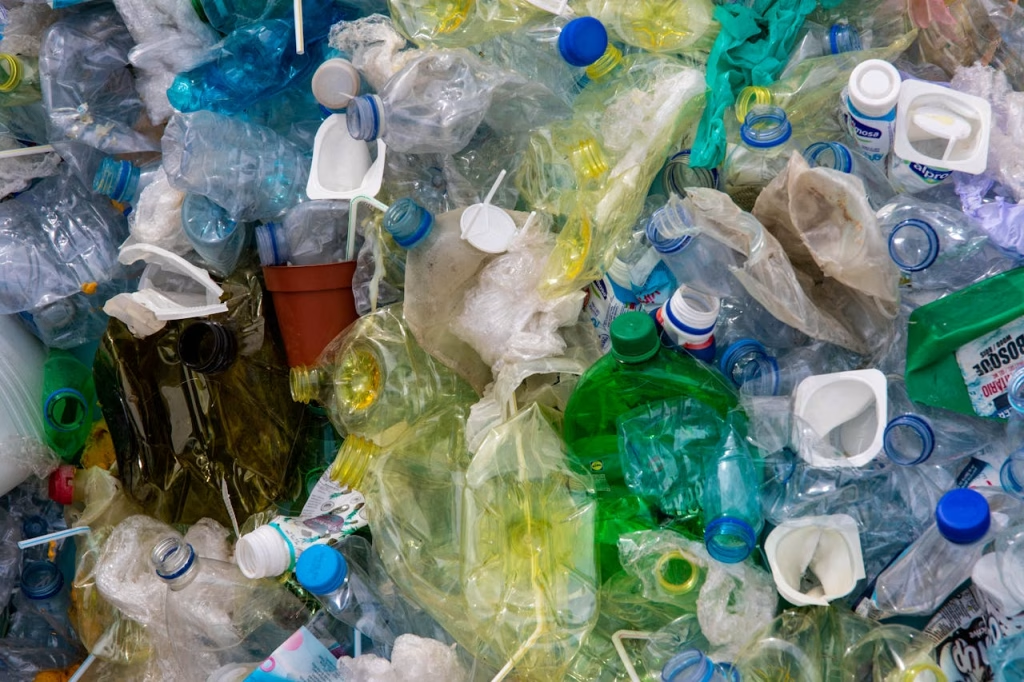
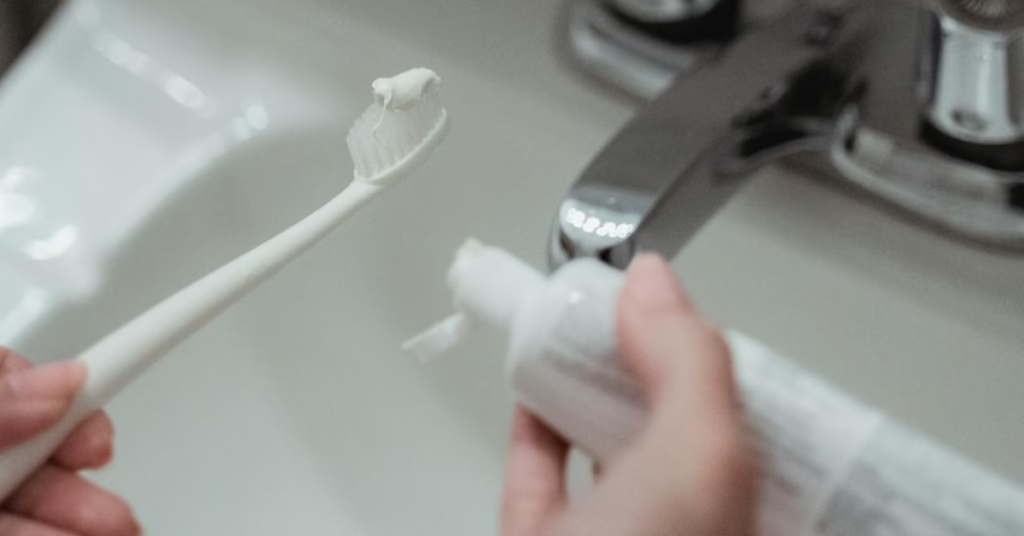

Heya i’m for the first time here. I found this board and I
find It truly useful & it helped me out a lot. I hope to give something back and aid others like you
helped me.
thank you so much !
Rather useful topic. great way to learn about the Yuka app.
thank you, glad you like it !
great article amout Yuka App, I use it all the time. Thank you for sharing!
I love Yuka app, it saves so much time when shopping!Great article!
Thank you , and yes, I use it all the time !
Love Yuka app, thanks for sharing !
Glad you liked it 🙂
I have been using Yuka app for a while now. I agree with you, it is great as a baseline but I still check ingredients to make sure there are no errors.
Great review! I’ve been curious about the Yuka app, and your insights on the pros and cons are super helpful. It’s interesting to see how it weighs in on product transparency. I’m definitely going to try it out and see how it measures up to my favorites!
Thank you, Kelli!I am glad you fond my article insightful 🫶
Thanks for this insightful review! I’ve been curious about the Yuka app but was unsure whether it lived up to the hype. I appreciate the breakdown of the pros and cons—it really helps to clarify its functionality. Looking forward to trying it out and seeing if it makes a difference in my shopping choices!
I am glad you like it. As I mention in the article, technology is great as a guide, but we always need to double-check the information. I love using Yuka app, especially for beauty products as there are so many ingredients, and I can’t remember them all 🙂
Hello, of course this post is in fact fastidious and I have learned lot of things
from it on the topic of blogging. thanks.
Great review! I’ve been curious about the Yuka app and your pros and cons breakdown really helped clarify its value. I’m particularly interested in how it compares to other apps. Thanks for sharing your insights!
Great review! I appreciate the detailed breakdown of the pros and cons of the Yuka app. It’s so helpful to understand whether the info is truly accurate or just hype. I think I’ll give it a try based on your insights!
Great review! I appreciate the balanced take on the pros and cons of the Yuka app. It’s helpful to know both sides before deciding whether to download it. I’m curious if you’ve noticed any changes in your food choices since using the app!
Great review! I appreciate the balanced approach in discussing both the pros and cons of the Yuka app. It’s interesting to see how it compares against other apps in terms of accuracy. I’m going to give it a try based on your insights!